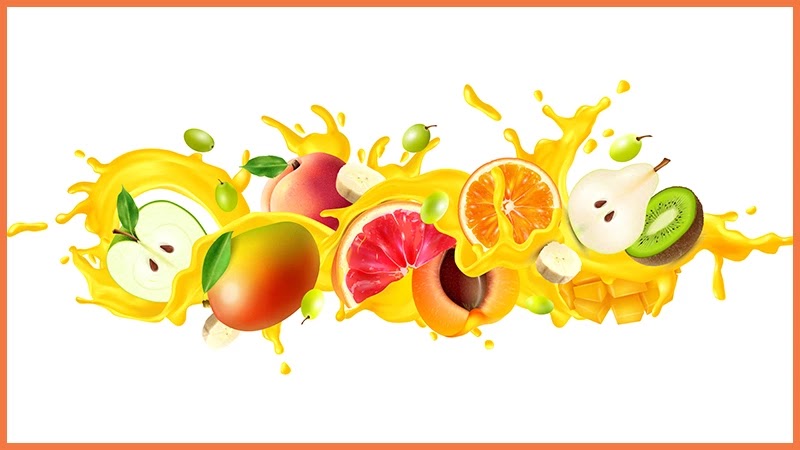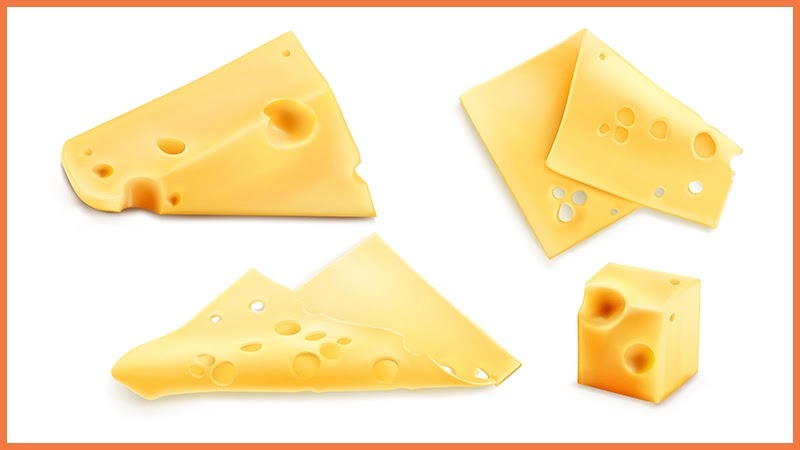10 Fruits High in Protein You Should Include in Your Diet
What comes to mind when you think of foods that are high in protein? Most likely, beef, fish, and chicken come to mind.
And if you follow a plant-based or vegan diet, you probably consider nuts, seeds, and legumes like beans.
Fruit is one thing that you might not consider. Certain fruits do contain a lot of protein.
These high-protein fruits can therefore be eaten as snacks or incorporated into your preferred high protein high-protein meals if you want to eat more fruit while increasing your protein intake.
 |
| 10 Fruits High in Protein |
1. Guava
Guavas are green tropical fruits, in case you've never heard of them. Guava contains 2.5 grams of protein per 100 grams. That amounts to 5% of your required daily protein intake.
Furthermore, it offers a staggering 381 percent of your daily requirement for vitamin C. Compared to an orange serving, which has four times the amount of vitamin C! So, so if you ever get a cold, try guava.
Guavas offer several fascinating health advantages. For example, guavas may help you avoid getting gingivitis, a form of early gum disease.
Guavas can be eaten whole or, if you prefer, you can scoop out the flesh and eat it on its own. The flesh can even be used to make jam.
Making your own jam has the benefit of being fresh. You can also decide how much sugar or another sweetener to use.
2. Avocado
Indeed, avocados are delicious and high in protein. Avocados have 2.0 grams of protein per 100 grams.
Additionally, it provides 14% of your daily requirement for potassium. When compared to the same serving of bananas, that has nearly 40% more potassium.
Additionally, they offer a ton of heart-healthy fats. Additionally, they make you feel full because they are high in fiber in addition to fat. So they might aid in your weight loss.
They also assist in up to 15 times greater antioxidant absorption. So make sure to include avocados in your salad the next time.
Avocados are a fantastic fruit to use for a high-protein breakfast because they go so well with toast and are great in salads as well. They can also be used to make guacamole.
3. Apricot
If you enjoy a little acidity in your fruits, you'll love apricots. The fact that 1.4 grams of protein are present in a 100-gram serving will make you happy.
Apricots are a good source of antioxidants, which your body needs to combat free radicals. Diseases like cancer can develop as a result of free radical damage.
Apricots can be used to make jam and added to yogurt in addition to being eaten on their own. Even better, you can simmer them in a slow cooker with meat to create dishes like this Moroccan Beef Stew.
4. Blackberries
Blackberries could become one of your new best friends if you're following a ketogenic diet. In addition to having fewer net carbohydrates than the majority of other fruits, they also have a higher protein content.
Blackberries have 1.4 grams of protein per 100 grams. Additionally, it fulfills a staggering 21% of your daily fiber requirements.
Manganese, which is necessary for strong bones, is also abundant in blackberries. So, consume all of the blackberries!
They might also be advantageous to your brain. This is due to the antioxidants that berries, including blackberries, contain, which may lessen inflammation in the brain.
Blackberries can be consumed unprocessed. Or you can incorporate them into smoothies or Greek yogurt.
Even low-carb treats like these keto blackberry muffins can be made with them. They are excellent if you are following a strict ketogenic diet because each muffin has just 1 gram of net carbohydrates.
5. Raspberries
Another fruit that fits the keto diet and is high in protein is raspberry. 1.2 grams of protein are present in a serving of 100 grams.
Raspberries may also lessen weight gain and help with arthritis. They contain a lot of antioxidants, which may help fight aging symptoms.
Raspberries have a wide variety of uses. They can be included in smoothies, pancake batter, and yogurt.
Even baked goods like my Ketogenic Raspberry Coconut Cupcakes can use them. The raspberries add a delicate balance, and they have a mild coconut flavor. Make sure you have some coconut flour on hand to keep them keto.
6. Kiwi
When you eat kiwis, do your lips purse? Kiwis are definitely delicious, though mine do too.
But did you know that kiwis contain 1.1 grams of protein per 100 grams? A staggering 155 percent of your daily vitamin C requirements are also met by it; this is more vitamin C than an orange.
You're aware of the proverb "an apple a day keeps the doctor away"? So three kiwis per day might help you avoid the doctor.
According to a study, those who consumed three kiwis daily had lower blood pressure than those who consumed one apple.
Kiwis are delicious on their own, in fruit salads, and also pair well with Greek yogurt.
7. Bananas
You might consider peanut butter to be your source of protein if you enjoy eating a banana and peanut butter sandwiches. But protein is also present in bananas.
100 grams of bananas have 1.1 grams of protein in them. In addition, bananas are a good source of potassium, which is essential for a healthy heart.
Bananas also make a great substitution for sugar if you're trying to bake without it. The affordability of bananas is another great quality.
8. Oranges
Oranges are deliciously juicy and contain a higher level of protein than many other fruits. In actuality, 100 grams of oranges have 0.9 grams of protein in them.
Oranges not only aid in the prevention of colds but also kidney stones. They are excellent sources of citrates, which explains this.
9. Peaches
Did you know that a serving of 100 grams of peaches contains 0.9 grams of protein? Peaches are a great source of flavonoids and antioxidants that may help prevent heart disease.
Even so, they might lower the risk of breast cancer. In fact, a study showed that eating at least 2 peaches daily reduced breast cancer risk by 41% in participants.
10. Cantaloupe
Cantaloupes are not just tasty; they are also healthy. 0.8 grams of protein are present in a serving of 100 grams.
Additionally, it meets 61% of your daily vitamin C needs and 68% of your daily vitamin A requirements. Vitamin A and C-rich foods may lower the risk of developing breast cancer.
Cantaloupes make excellent additions to fruit salads, but you can also use them to make sorbets and smoothies. Additionally, you might want to add some cantaloupe to your grill for those sweltering summer days.
Conclusion
Excellent sources of vitamins and minerals are fruits. Fruits do, however, also contain protein, albeit in varying amounts.
So if you want an extra boost of protein, think about including some high-protein fruits in your diet.



